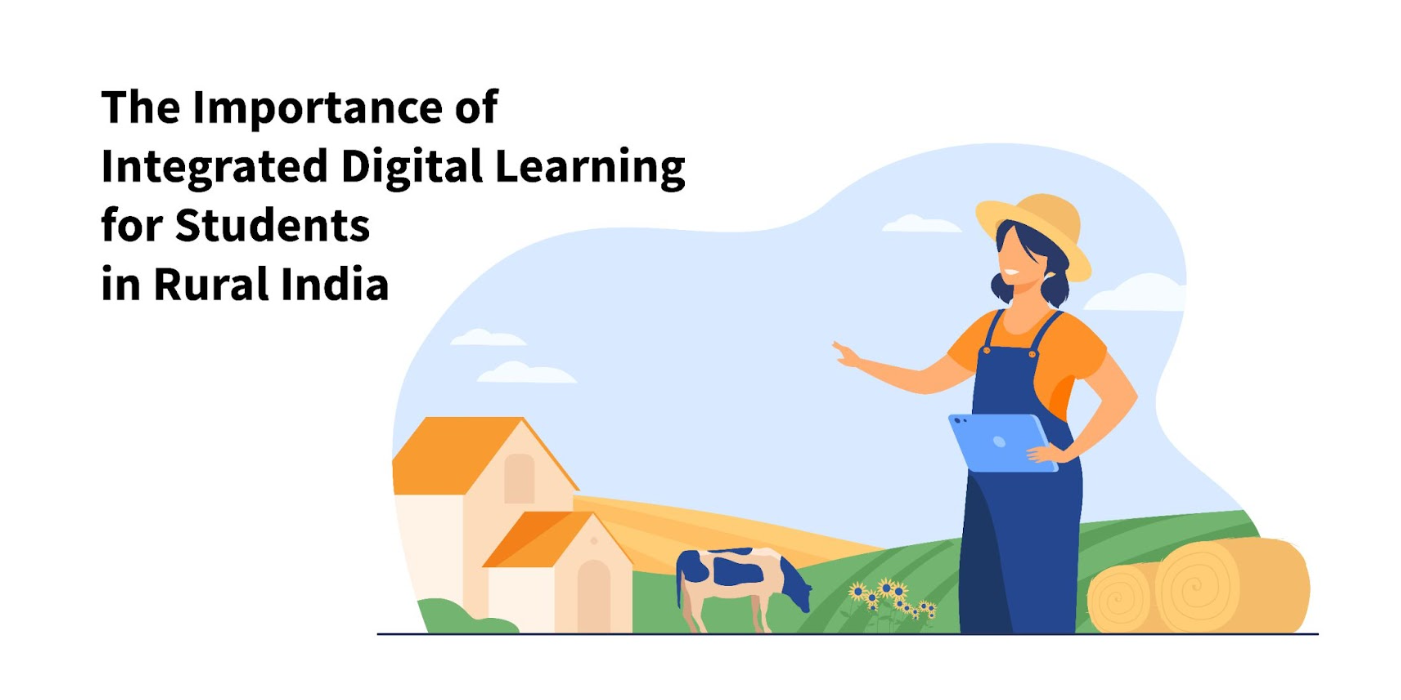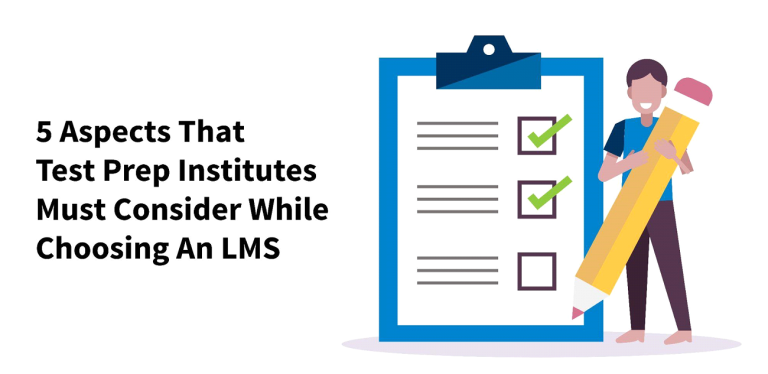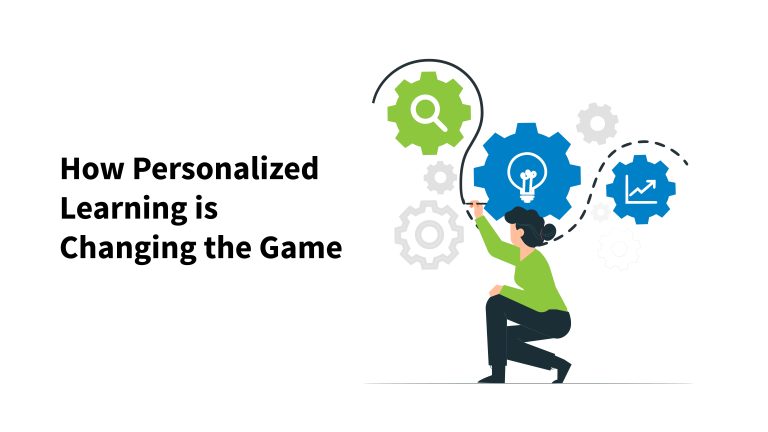Tier 3-4 cities and towns in India have long been known as an underserved segment when it comes to education. However, in recent years, integrated digital learning has emerged as a game-changer for students in such towns, providing them with equitable and accessible education, particularly for individuals from disadvantaged socio-economic backgrounds.
Various organizations and institutions have taken initiatives to provide integrated digital learning to students in rural India. One such initiative is the SWAYAM, launched by the Ministry of Education, which provides access to educational resources in multiple languages. Moreover, many Philanthropic Foundations and CSR initiatives of Corporates have also extended their reach to Tier 3-4 towns and rural India, by providing students with access to online classes and study materials.
Despite these initiatives, challenges loom large, as access alone doesn’t address many other aspects, such as:
- Low-end mobile devices with limited functionality: Despite access to devices, low-end models may not support certain technologies.
- Unreliable internet access creates obstacles: Inconsistent internet connectivity makes it difficult to access online resources and communicate effectively.
- English language is not preferred: Many individuals may not be fluent in English or may prefer to communicate in their native language, leading to language barriers that can impede access to digital platforms that support only English as a language.
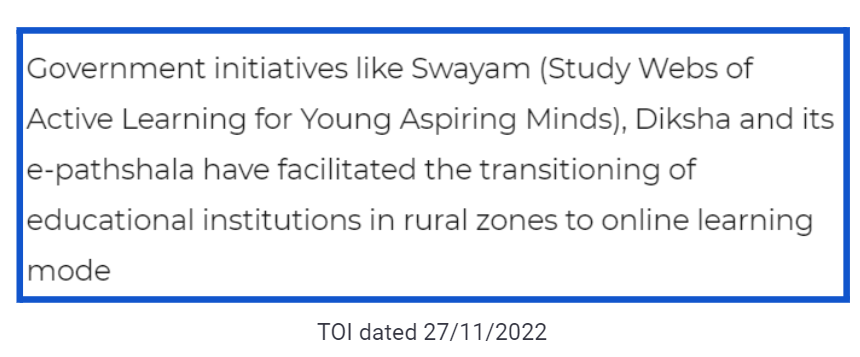

In this context, an LMS like TriByte is a crucial tool for enabling integrated digital learning in rural India. Its features are just what is needed by education providers serving this segment of students-
- Offline access
- Multi-device availability
- LearnBox – Local cloud for devices
- Multilingual capability
- Offline Assessments
These features make Tribyte LMS an ideal solution for providing integrated digital learning to students in rural areas. Through an integrated digital learning platform, students can receive personalised learning experiences that meet their unique needs and help them achieve their full potential.
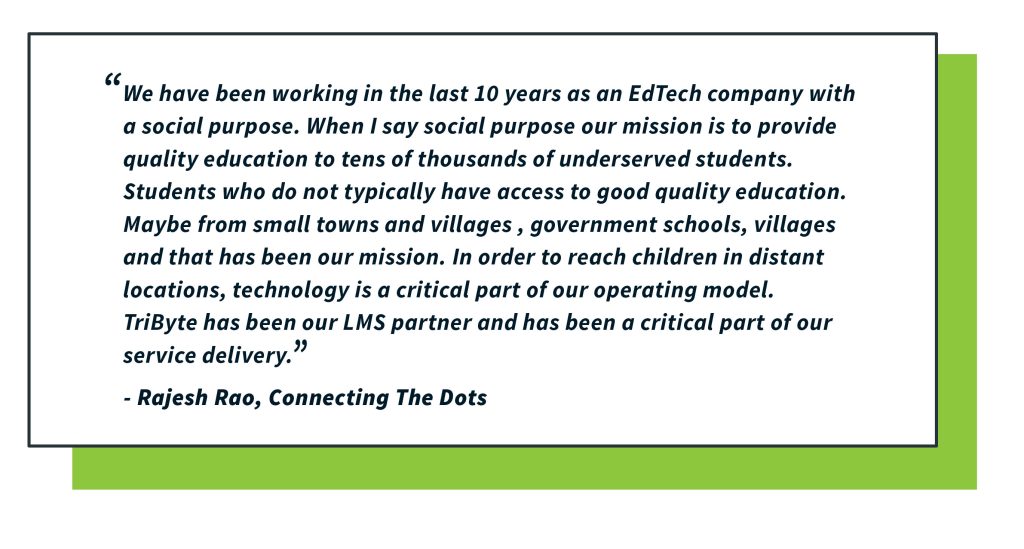

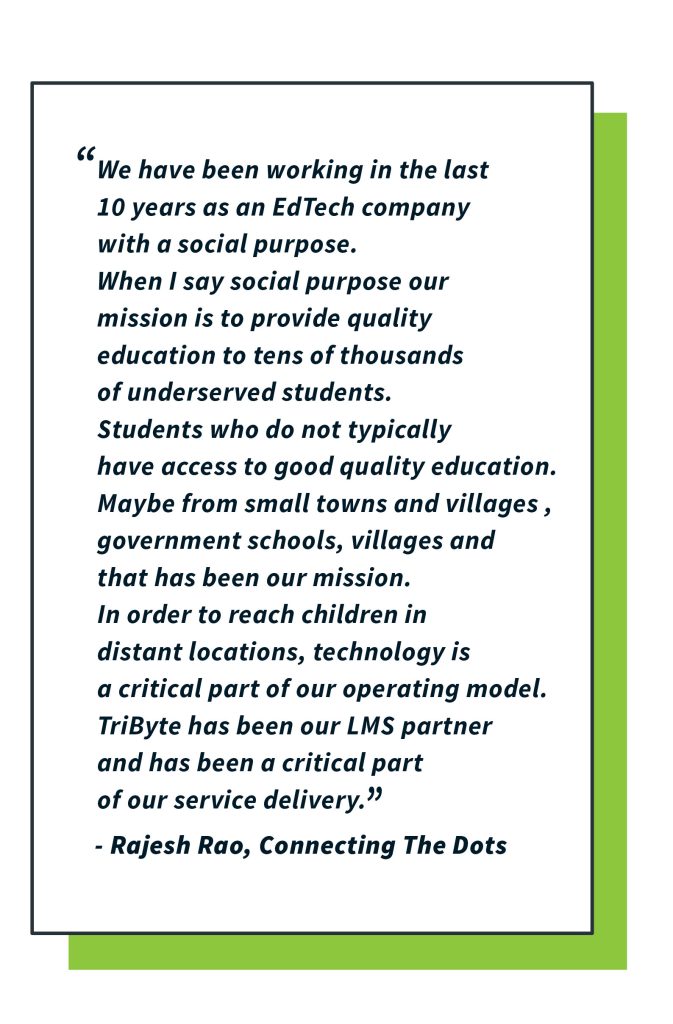

Fully Offline: Offline learning solutions offer uninterrupted learning, even without internet access, and allow users to track their progress. Drip content update systems enable offline access to relevant material without the need to download everything at once. For areas with limited internet capacity like India’s hinterland, offline-based content delivery through secure SD cards and pen drives can be beneficial for accessing digital resources.
Multi-Device Availability: TriByte LMS platform for education can be accessed through a Windows or mobile browser, Android or iOS apps, thereby enabling students to learn from any device at any time. TriByte LMS can still be accessible and function seamlessly even on basic smartphones that may not be feature-rich or have the latest updates.
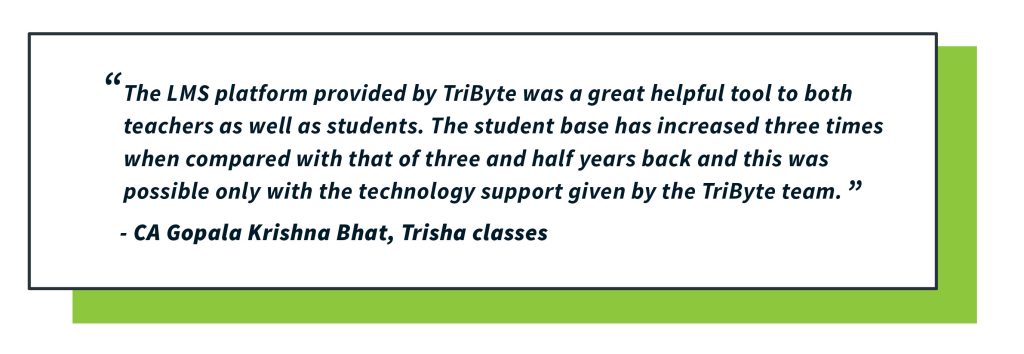

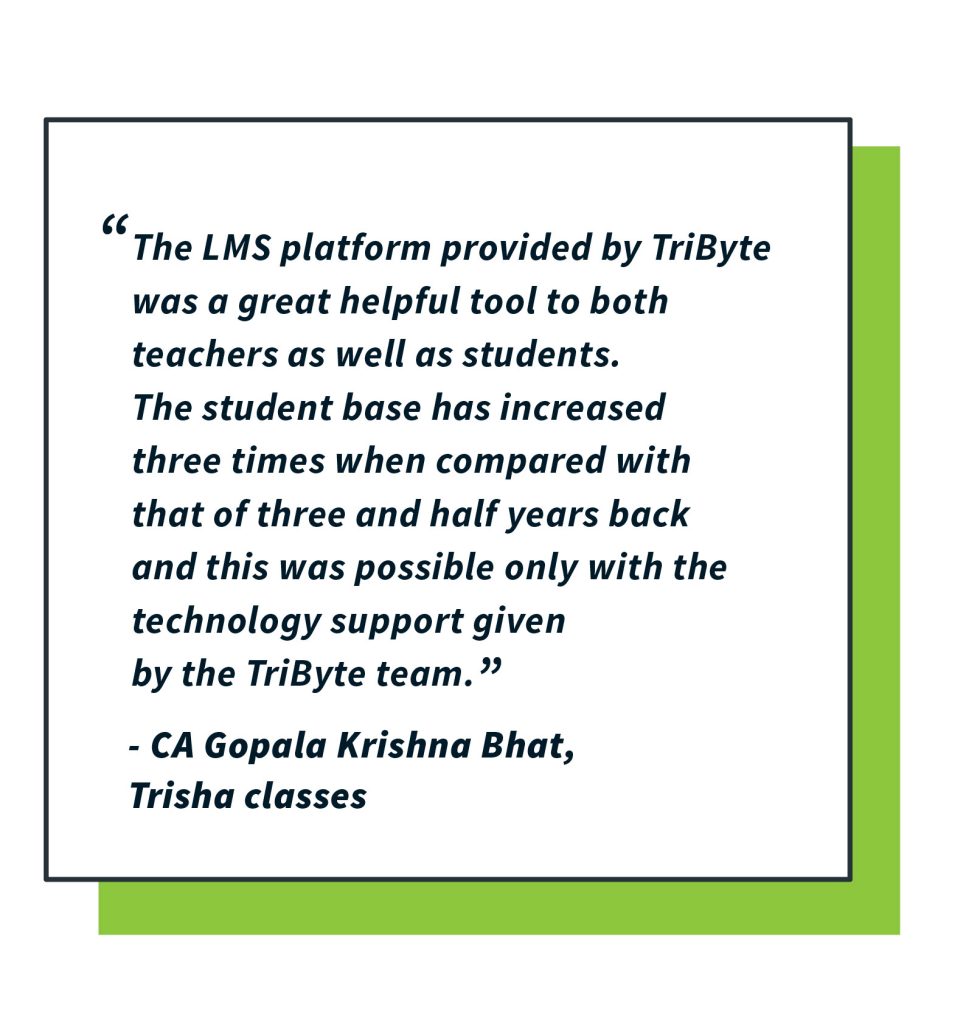

Learnbox: TriByte’s LearnBox is a proprietary solution that offers a local cloud for devices to access learning material without an internet connection. It can connect up to 50 users simultaneously, with a consistent user experience regardless of internet connectivity. LearnBox also allows for the secure downloading of content to local devices and enforces licensing and usage restrictions while synchronising usage information back to the cloud for detailed analytics.
Multilingual: Students in rural areas may not be proficient in English. TriByte LMS provides a facility to support usage in vernacular languages, such as English, Hindi, Tamil, Kannada, Spanish, Bahasa, and others. This ensures that students can learn in their preferred language, making learning more comfortable and inclusive. This has helped remove the language barrier in learning and is also in line with the National Education Policy 2020.
Offline Assessments: Offline assessments offer a solution by removing this concern and automatically syncing results once internet connectivity is restored. In areas with unreliable networks, technologies that enable offline work for students and teachers can provide a seamless online experience and improve learning outcomes.
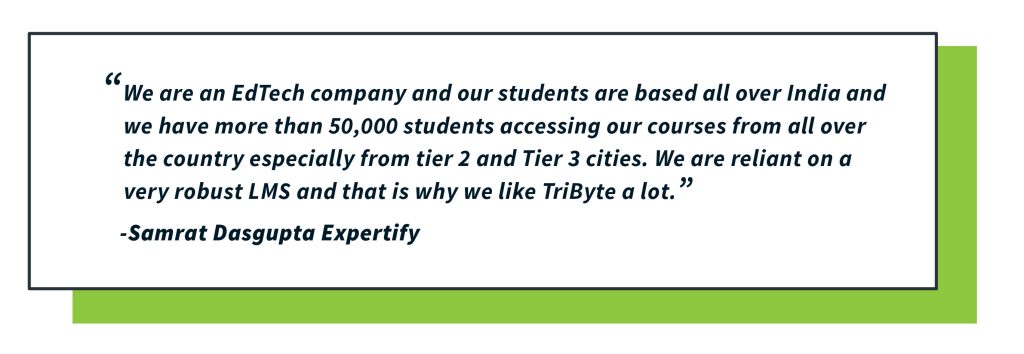

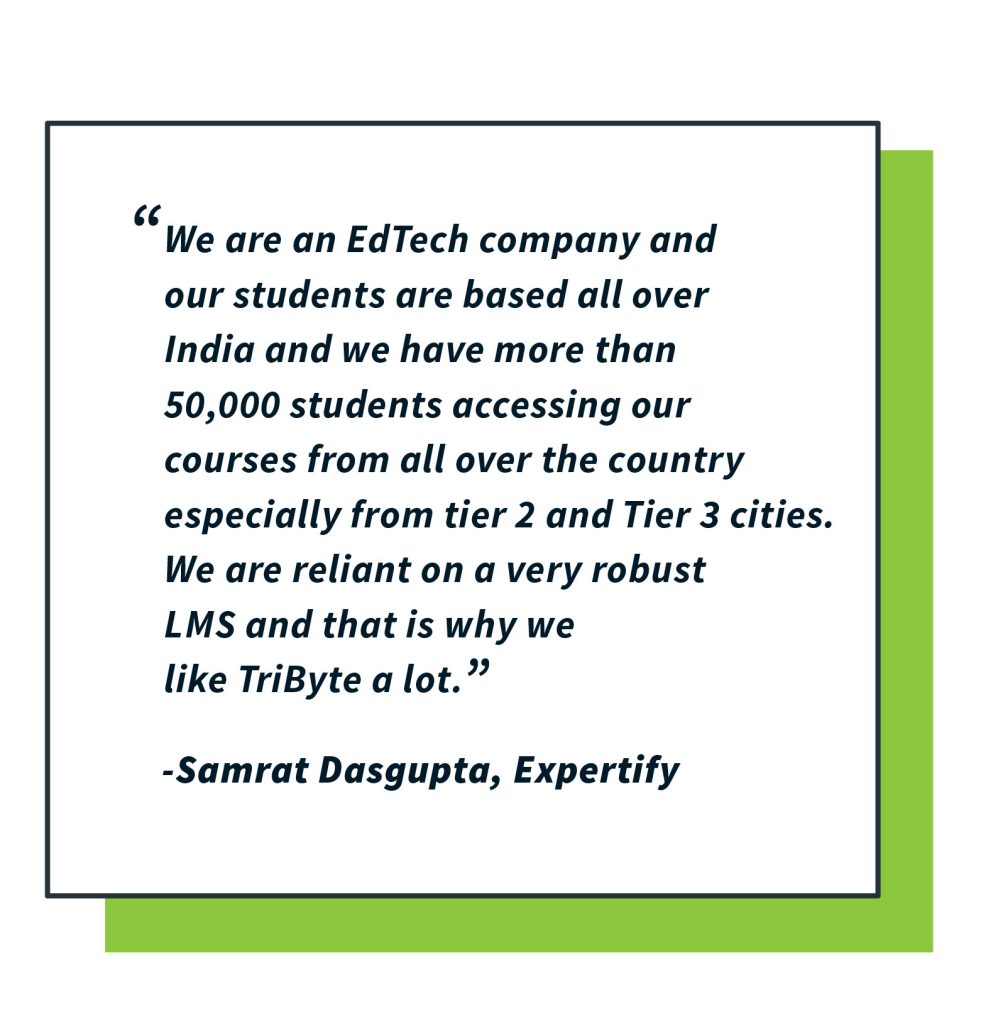

In conclusion, integrated digital learning can be a game-changer for students in Tier 3 and Tier 4 cities and towns of India. By leveraging technology and LMS like TriByte, tutors, and institutions can provide students with access to high-quality education that is tailored to their needs and learning styles.


